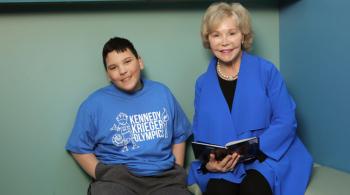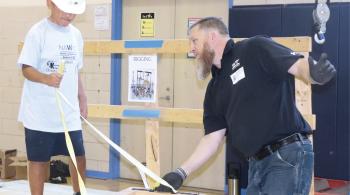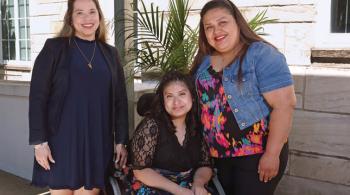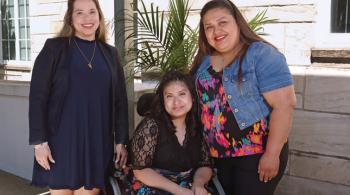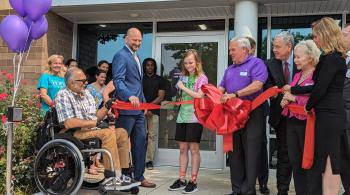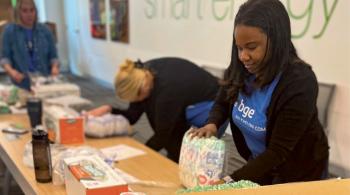BALTIMORE, April 30, 2021—Kennedy Krieger Institute will begin testing consented students for COVID-19 in May at all four of its schools as part of a study that will help to determine the best strategies for the safe return to in-person learning for students with disabilities.
The study is part of a larger project funded by the National Institutes of Health (NIH) and overseen by Washington University School of Medicine in St. Louis. There, researchers already have administered more than 4,000 rapid COVID-19 tests to students, teachers, and administrators in the six special education schools operated by the Special School District of St. Louis County (SSD).
At Kennedy Krieger’s School Programs, the goal is to test 650 asymptomatic students, teachers, and school staff each week. In addition, researchers seek to assess perspectives about COVID-19 testing, and vaccines among parents of students with disabilities who do not return to in-person learning. Based on parent surveys, researchers believe that one-third of parents will not send their children back to school for in-person instruction during the ongoing pandemic. In St. Louis, 45 percent of children with disabilities have not returned to in-person instruction at the county’s special education schools.
In partnership with the Maryland State Department of Education and local school systems, Kennedy Krieger School Programs serve nearly 500 public school students with disabilities from more than half of the school districts in Maryland.
“Kennedy Krieger Schools are excited to add weekly testing to our COVID-19 safety toolkit so students with disabilities are able to safely and more fully return to in-person instruction,” said Dr. Linda Myers, vice president of School Programs and one of the study’s co-principal investigators. “We are hopeful that the results of this study will be helpful for school communities across the country as we continue to navigate the pandemic.”
Many individuals with intellectual and developmental disabilities have underlying medical conditions that put them at a higher risk for developing COVID-19 and even severe complications. At the same time, the pandemic has disproportionately affected individuals with disabilities, in part because many rely on daily structure and in-person support for learning and social growth. Through this project researchers hope to remove testing obstacles and therefore help decrease the impact of COVID-19 on children, teens, and young adults with intellectual and developmental disabilities.
In addition to Dr. Myers, two other Kennedy Krieger staff members are administering this study: Maureen van Stone, director, Maryland Center for Developmental Disabilities and Director of Project HEAL; and Dr. Luther Kalb, director of the Informatics Program at the Center for Autism and Related Disorders.
Funding comes from the NIH, which has awarded up to $33 million over two years for projects at 10 institutions across eight states as part of its Safe Return to School Diagnostic Testing Initiative and through its Rapid Acceleration of Diagnostics Underserved Populations (RADx-UP) program. This funding was made available by the American Rescue Plan.
This research is supported by the National Institutes of Health (NIH), grant number 10T2HD107556-01.
About Kennedy Krieger Institute:
Kennedy Krieger Institute, an internationally known nonprofit organization located in the greater Baltimore-Washington, D.C., region, transforms the lives of more than 25,000 individuals a year through inpatient and outpatient medical, behavioral health and wellness therapies; home and community services; school-based programs; training and education for professionals; and advocacy. Kennedy Krieger provides a wide range of services for children, adolescents and adults with diseases, disorders and injuries that impact the nervous system, ranging from mild to severe. The Institute is home to a team of investigators who contribute to the understanding of how disorders develop, while at the same time pioneering new interventions and methods of early diagnosis, prevention and treatment. Visit KennedyKrieger.org for more information about Kennedy Krieger.
###
MEDIA CONTACT:
Jessica Gregg
443-823-9811 (cell)





